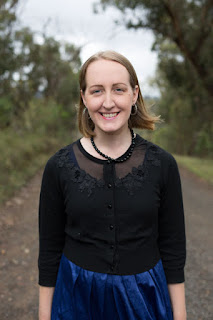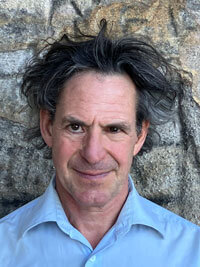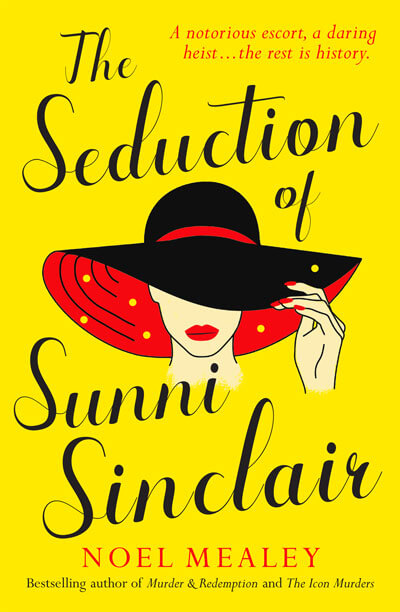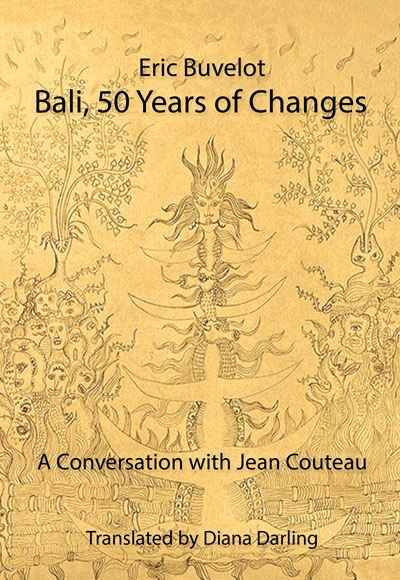Tim Jones
Tim Jones is a poet and author of both science fiction and literary fiction who was awarded the New Zealand Society of Authors Janet Frame Memorial Award for Literature in 2010. He lives in Wellington, New Zealand.
Among his recent books are fantasy novel Anarya's Secret (RedBrick, 2007), short story collection Transported (Vintage, 2008), and poetry anthology Voyagers: Science Fiction Poetry from New Zealand (Interactive Press, 2009), co-edited with Mark Pirie. Voyagers won the "Best Collected Work" category in the 2010 Sir Julius Vogel Awards.
Sample
Impertinent to Sailors
Curved over islands, the world
dragged me south in a talkative year
slipping Southampton
as the band played a distant farewell.
It was better than steerage,
that assisted passage: ten pound Poms
at sixpence the dozen, promenading
in sun frocks, gathering for quoits,
angling, in an understated way,
for a seat at the Captain’s table —
while I, a child, roamed decks, became
impertinent to sailors.
And the heat! My dear, there never were
such days — rum, romance,
the rudiments of ska. Panama beckoned,
locks pulsing like the birth canal.
We passed through, to be rocked
on the swells of the quiet ocean,
its long unshaded days
of trade winds, doldrums, Equator —
then a cold shore,
a bureaucratic harbour,
and the half of a world
it would take to say goodbye.
Now What?
A good question
here in the living room
at quarter to three.
All the others
are in bed.
They’re drawn in pairs
& yet again we’ve drawn the bye.
Have a coffee — Thanks.
What’s on the telly? Static.
A penny for your thoughts;
I’ve wrung the last
thin juices out of mine.
Have another orange, go on,
be a devil.
Stuff a chilli up your nose,
see a doctor, read a book,
save the world in fifteen minutes.
Put on your hat & coat & gloves
then take them off again.
Family Man
My double relishes his freedom to move
through narrative and time. You’ll find him
in the trunks of burned-out cars,
in the cat seat of history, riding pillion
as the motorcade fails to take the bend.
On the red carpet, just behind the stars,
he whispers poison in each lovely ear.
He’s the sine qua non, the ne plus ultra,
the hand chained to the plague ship’s tiller,
the indispensable figure of the fifth act.
But now he’s taken to hanging round the house,
not picking up, showing the boy amusing tricks
and games to play with string. I’m bored,
my double tells me, and:- how can you stand
to live this way? I look into his empty face.
You’re the one who chose to fall in love, I say.
Read more on Google Booksearch


























IP (Interactive Publications Pty Ltd)
P S Cottier and her New Zealand co-editor Tim Jones have assembled an ebullient landmark anthology that attempts to embrace a very broad church indeed. An impressive matrix of ‘big names’ in Australian poetry allows plenty of space nevertheless for the minor poets, who contribute some of the best pieces in the diffuse speculative genre. The poems surprise and delight, lending the anthology a broad appeal.
– Judges’ Report, ACT Publishing Awards, 2015
IP (Interactive Publications Pty Ltd)
I can’t argue with this collection; there is a lot to like about it. The editors put out an open submission call for Australian spec poetry writers and mined Australian poetic luminaries for a semblance of the fantastical, reaching back to Banjo Patterson. What we get is a collection of highly readable poetry, although there are two aspects: the purely spec, and the literary with a dash of spec. The latter is always the stronger.
For example, Boyle’s The Museum of Space (2004) is more about that big empty stuff that holds our lives than it is about the backdrop for rockets. However, we get this: “Why are water and sand always used to / measure time passing? They must then be the one substance— / what never gets dry, what never gets wet, the absolute embrace / that says, Wade into me.” For me, lines like that take my breath away.
Oh, there’s plenty of pure, unambiguous spec work in here, make no mistake. As a collection of purely spec poetry, it’s like any good spec magazine, one that is having a particularly fine issue, full of poems that close the hatch, at least, even if they don’t take off. However, what makes this book sing are the poems that don’t even get on board Serenity.
While I don’t love this collection, I do like it very much. I’m not sensitive enough to tell you what cultural issues mark out the Australian mind, but if you’re an American, I think you will sense a slight difference, and that by itself might be enough to entice you to buy it. All in all, if you’re reading Star*Line, you will like this book, and if you collect these things, then it should go on the respectable shelf, near Holding Your Eight Hands.
—John Philip Johnson, Star*Line issue 37.4
IP (Interactive Publications Pty Ltd)
One of the most enterprising, unusual and rewarding anthologies of the last year is The Stars Like Sand: Australian Speculative Poetry, edited by New Zealand writer Tim Jones and Australian poet PS (Penelope) Cottier. The key word in the sub-title is defined with an appropriate generality: “the speculative is the area in which we attempt to write what we can’t possibly know”.
The poets included range from the 19th century to the present, a much narrower temporal span than their poems, which travel millennia into the future and across galaxies. Bearing the latter point in mind, the editors note that theirs is a book “with a wide geography and an interesting fauna”. They continue: “Here be dragons, true, but also zombies (traditional and vegetarian), werewolves, swagmen, poets small enough to fit into pockets, aliens of various sorts, angels, people made mostly of spare parts, or preserved wholly in DNA, and intergalactic tradies.”
Though the book covers so much territory (and given the list above, unsurprisingly has several poems set in museums and zoos), it is tightly and wittily organised into five thematic sections, each taking its name from a notable nineteenth-century poem. The first, dealing with “space travels and related pursuits”, is “We don’t know where he’s at” (from Banjo Paterson’s “Clancy of the Overflow”); the second, “Howsoe’er anomalous”, concerned with “aliens, weird creatures, surrealism and magic realism”, comes from a poem as strange as any that is to be found here: Barron Field’s “Kangaroo”. Next – with its title from Henry Lawson – is “On the Wallaby (temporal)”, whose subject is “time travel and visions of the end of the world”. It is followed by “The fifth part of the earth” (Field again): “Australia in various lights”. Last is “His ghost may be heard” (Paterson – in a version of Waltzing Matilda – and the ballad is here in its entirety too), whose business is “ghosts, fairies, myths and legends”.
The collection opens with the controlled whimsy of “Tea and Stars” by the always engaging John Jenkins: “The mouse travelled to the stars/in a blue teacup”. John Dolce’s “Job for a Hyperdrive Mechanic” works with a wry matter-of-factness: “As I recall the ambient temperature/of the angular discharge tub/airlocked the anode rod”. David Adès’ travel to “The Three Moons of Tenoa” ends plangently: “how unimaginable a world/with placid seas, and no capacious moons/to sing serenades by”. Travel is also the affair of S.K. Kelen’s brilliant parody of a tourist brochure in “Flying Toasters”. This of Kursa in Beta Eridani: “booking accommodation well in advance is wise though entirely futile”. This first section also contains “The Last Planet Out” by David Reiter, who is also the publisher of the admirable risk-taking Interactive Press that we can thank for this book.
As promised, aliens roam in Part Two. Diane Fahey’s “Silverfish” imagines the Thysaurans, while Benjamin Dodds’ “Others” muses of a possible arrival from so-called outer space and then decides “Perhaps they’ll simply pass us by/indifferent in sleek behemoths/on the way to a place less/parochial than here”. Emilie Zoey Baker presents “The Vegetarian Zombie – the undead salad beast” – while there is homage to a master of the weird, H.P. Lovecraft, in Jude Aquilina’s “Cthulhu Calls”. Jan Napier’s “Poets in Pockets” shows how “they shrill and argue/like an aggravation of lorikeets”, while there are poems by Philip Salom and Lisa Jacobson about Daedalus, the space traveller who flew too close to the sun. A number of the poems in The Stars Like Sand were invited. Much to the editors’ pleasure, one of those who accepted was Les Murray, whose superb poem “The Future” begins: “There is nothing about it. Much science fiction is set there/but it is not about it. Prophecy is not about it … Even the man we nailed to a tree for a lookout/said little about it”.
In this splendid anthology, that entertains from start to finish, we find such colonial poets as J. Brunton Stephens in “The Courtship of the Future” (AD 2876) depicts a world where – even though people coupling have been “taught to draw the whole soul though/A foot of gutta-percha tubing”– sexual misconduct has not been eradicated. Tim Sinclair’s vision of the future in “Silent City” is quietly mournful: “There is no sunrise or sunset in the city,/just a uniform, sourceless glow”. In “The End of the World”, Lawson’s contemporary Victor Daley reveals a peevish and disappointed God who brushes Man off his knees: “With all its glories ripe/The Earth passed, like a spark/Blown from a sailor’s pipe/Into the hollow dark”. The Stars Like Sand shows us, in the work of the more than 80 poets included, much of that illimitable dark, as well as the flights of fancy and hope that can give brief and brilliant illumination. Seek out this book – admirable, and one of a kind.
– Peter Pierce, Sydney Morning Herald